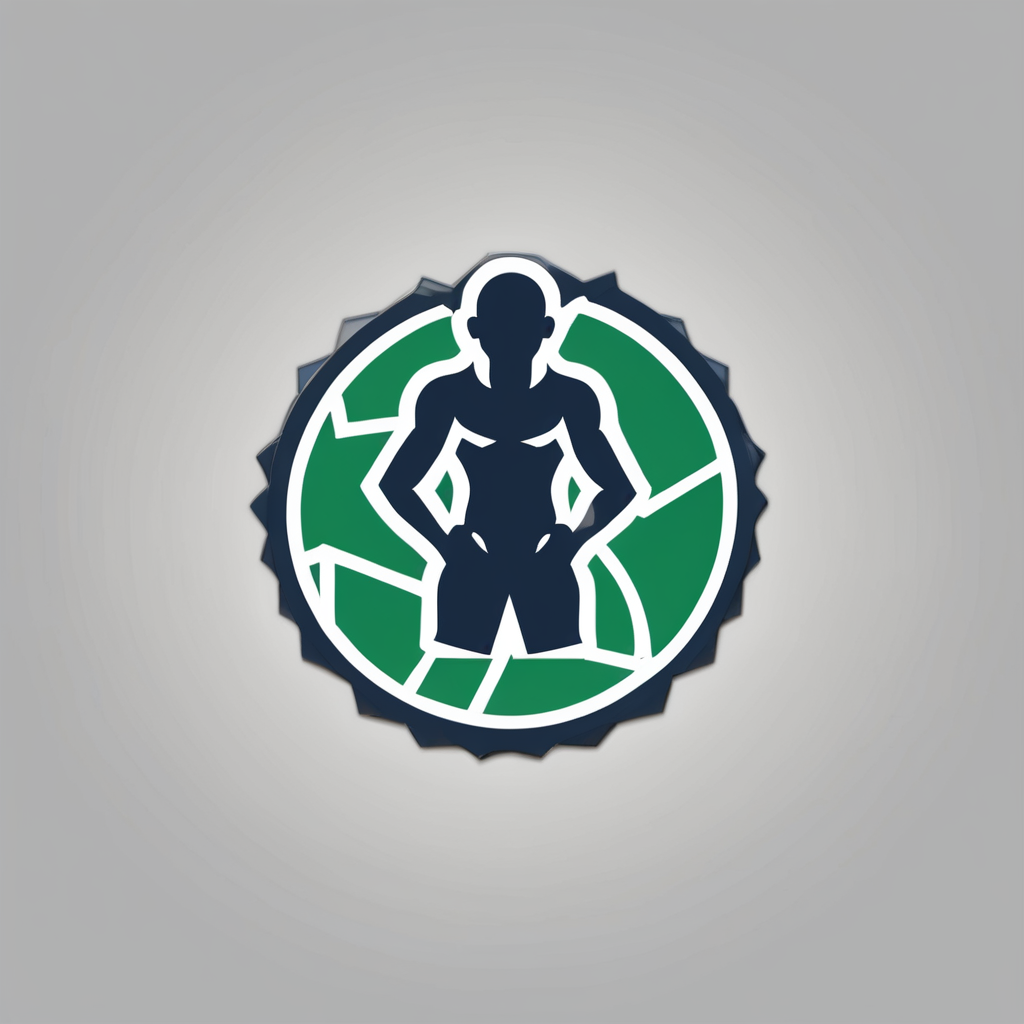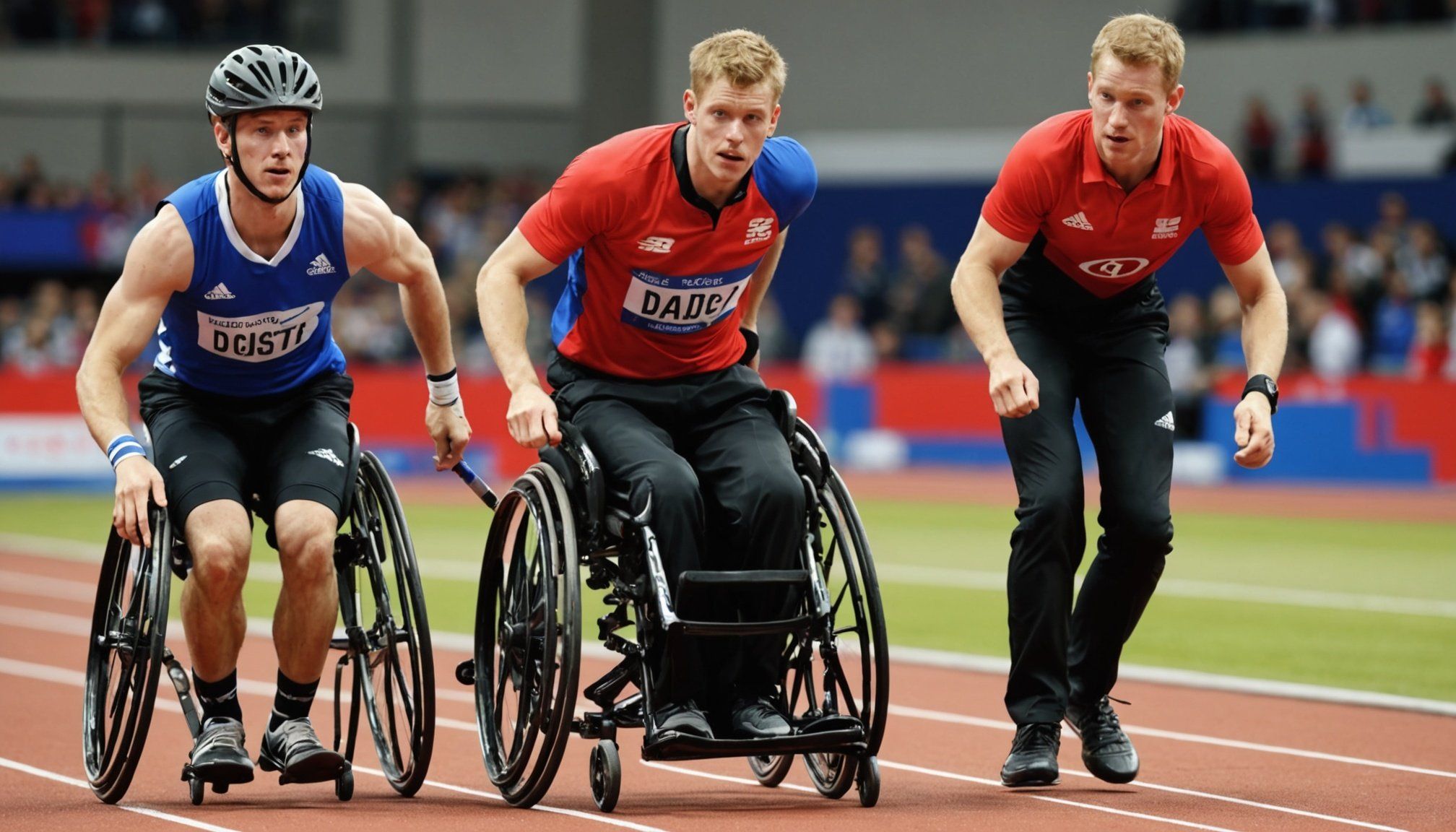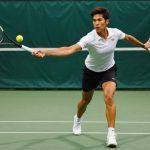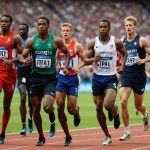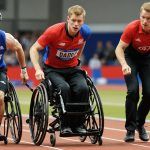In today’s world, where sports play an integral role in fostering inclusivity and health, the UK government stands at the forefront of supporting athletes with disabilities. With a focus on breaking down barriers and promoting active participation, various initiatives and programmes are in place to not just encourage but empower athletes with disabilities to reach their competitive potential. These efforts are instrumental in ensuring that people with disabilities enjoy the same opportunities and recognition as their able-bodied counterparts in the world of sports. This article delves into the level of commitment and resources dedicated to making this vision a reality.
Championing Inclusivity: Policy and Frameworks in Place
The UK’s approach to supporting athletes with disabilities is woven into the fabric of its sports policies and frameworks. The government’s commitment is evident through concerted efforts to ensure equitable access and participation in sports at all levels.
Also to read : What are the long-term impacts of early sports specialization on athletes in the UK?
Key Policies and Initiatives
-
Equality Act 2010: This landmark legislation ensures that individuals with disabilities have the same rights as everyone else in sports and other areas of public life. It mandates reasonable adjustments and promotes a culture of inclusivity.
-
Sport England Partnerships: Collaborating with national sports bodies, Sport England works to increase the number of disabled people participating in physical activities. This includes funding accessibility projects and providing grants to local sports clubs.
Also read : How can athletes in the UK ensure they are following fair play regulations?
-
Active Lives Survey: This ongoing research initiative collects data on the participation levels of disabled individuals in physical activities, informing government policy and funding decisions.
Funding and Resources
Funding is pivotal in supporting disabled athletes. Programmes like UK Sport receive substantial government funding to support elite athletes through grants and training facilities. In 2022, UK Sport allocated around £345 million to various sports, ensuring bespoke support for para-athletes.
The commitment to inclusivity extends to grassroots levels, with initiatives designed to nurture talent from a young age. The government collaborates with schools and community centers to promote sports among disabled children, ensuring early exposure and engagement.
Barriers and Solutions
While significant strides have been made, challenges persist. Barriers such as lack of accessible facilities and attitudinal biases remain. The government acknowledges these challenges and works with various stakeholders to devise solutions, ensuring an environment where every athlete, regardless of their disability, can thrive.
Support Systems: Training and Development Opportunities
The UK government’s commitment to disabled athletes extends beyond policy frameworks to tangible support systems that foster development and excellence. Comprehensive training and development opportunities are pivotal in transforming potential into performance.
High-Performance Training Programs
Elite athletes with disabilities have access to specialized training programs tailored to their needs. The integration of cutting-edge technology, expert coaching, and bespoke training regimens enable athletes to compete at international levels. Facilities like the English Institute of Sport are equipped with state-of-the-art tools to support athletes’ growth.
Coaching and Mentoring
Quality coaching is vital for any athlete’s success. The UK government has initiatives in place to ensure that coaches working with disabled athletes receive specialized training. These programs emphasize empathy, understanding, and technical expertise, empowering coaches to effectively support their athletes.
Mentorship is also a key component in the development of athletes. Experienced athletes and coaches act as mentors, offering guidance and sharing insights that inspire and motivate emerging talents.
Career Transition and Education
Recognizing that athletic careers have a finite lifespan, the government also invests in educational programs to prepare athletes for life beyond sports. Initiatives like the ‘Athlete to Coach’ pathway encourage retired athletes to give back to the community, leveraging their experience to inspire the next generation.
Beyond the track and field, the focus on holistic development ensures athletes are well-rounded individuals ready to contribute to society, regardless of their career paths post-retirement.
Community Engagement: Grassroots to Global Impact
Community engagement serves as the backbone of any effective sports framework. The UK government’s focus on fostering inclusive sports cultures from grassroots levels has a ripple effect, influencing perceptions and promoting wider acceptance of disabled athletes.
Initiatives at the Grassroots Level
Local sports clubs and community centers are pivotal in nurturing talent. The government, along with organizations like the Youth Sport Trust, implements programs to encourage active participation among disabled children and young people. These initiatives focus on creating environments where every child, regardless of their ability level, can experience the joys of sport.
Impact on Society
Community-based sports not only foster individual growth but also impact societal perceptions of disability. By showcasing the abilities of disabled athletes, these programs challenge stereotypes and promote a culture of acceptance and respect.
Global Influence and Representation
UK-based initiatives often serve as models internationally. The success of British athletes in global competitions like the Paralympics highlights the effective support systems in place. These achievements enhance national pride and underline the importance of supporting athletes with disabilities on a global stage.
Through strategic community engagement, the UK government ensures that sports remain an inclusive platform for all, reinforcing the message that disabled athletes are as valuable and capable as any other competitor.
Collaborative Efforts: Partnerships for Progress
In the pursuit of excellence and inclusivity in sports, collaboration is key. The UK government’s support for disabled athletes is amplified through partnerships with various stakeholders, ranging from sports organizations to private enterprises.
Collaborations with National Sports Bodies
Organizations like the British Paralympic Association work closely with the government to provide structured support for athletes. These partnerships ensure that athletes have access to world-class training environments and competitive opportunities.
Involvement of the Private Sector
Private companies contribute significantly to the development of disabled athletes through sponsorships and funding. These partnerships provide financial support and leverage corporate platforms to raise awareness and promote inclusivity.
Community and Volunteer Involvement
Volunteers and community groups play a crucial role in supporting disabled athletes. The government’s encouragement of volunteer involvement helps sustain local sports programs and ensures that athletes receive consistent support at every level.
Ongoing Challenges and Future Directions
While collaboration has yielded positive outcomes, ongoing dialogue is necessary to address emerging challenges. Ensuring that all parties remain committed to the cause and adaptive to the changing landscape of sports is vital for sustained progress.
The unity among government bodies, organizations, and communities underscores the collective effort required to support disabled athletes, paving the way for a future where sports is truly inclusive.
The UK’s commitment to supporting athletes with disabilities is both comprehensive and commendable. By adopting a multi-faceted approach that includes policies, funding, training, and collaborations, the government ensures that every disabled athlete has the opportunity to excel in their chosen sport. As barriers continue to be dismantled, the future holds promise for even greater inclusivity and recognition of disabled athletes.
The ongoing journey towards a sports culture that celebrates diversity and ability is a testament to the will and dedication of all stakeholders involved. As we look forward to the continued success of disabled athletes on the world stage, it is clear that their achievements are not just personal victories but triumphs for the entire community. The UK stands as a beacon of hope and inspiration, demonstrating that with the right support, athletes with disabilities can and will achieve greatness.
